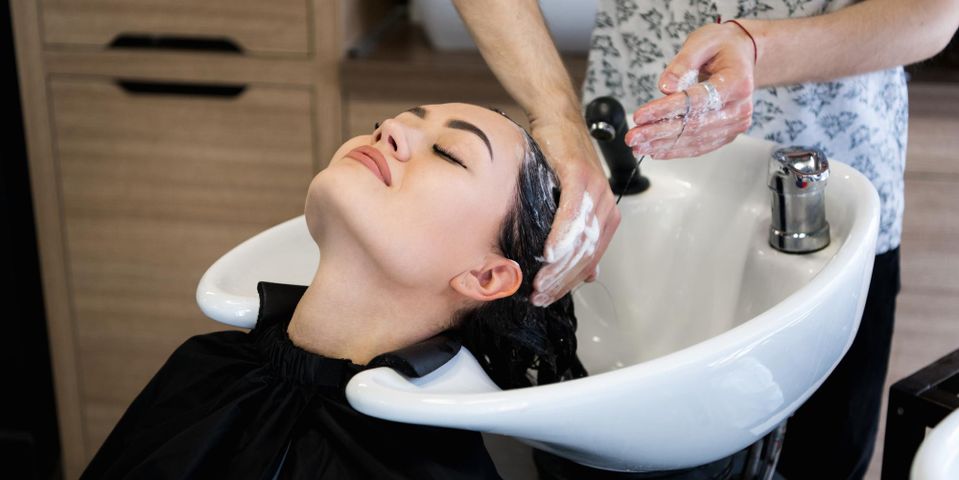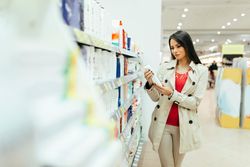
According to the Environmental Working Group, a woman, on average, applies 12 products a day containing 168 unique ingredients. While many of these products may say "all-natural" or "eco-friendly," ultimately, the test of truth for clean products are the ingredients on the label. Seeking out organic hair products and skincare can not only be good for the environment, but it can also help cut harmful chemicals from your daily routine. Here are a couple of factors to consider when investing in clean beauty.
How Beauty Products Factor Into Your Overall Health
With organic beauty products, the health implications are as much about what you're not applying to your body as it is about what you are. Your skin is incredibly porous, and your scalp is particularly vulnerable, absorbing up to four times more than the skin on other exposed areas, like your forearms. When you put potentially dangerous ingredients on your skin, those products enter your bloodstream and cause health problems like a hormone imbalance or endocrine disruption. Even skin deep, hazardous materials can result in skin irritation and inflammation.
Ingredients You Should Avoid
 Parabens
Parabens
Parabens are a popular buzzword thrown around when discussing hair products that aren't "clean." This ingredient is a preservative widely used in cosmetic products that prevents bacteria, mold, fungus, and other microorganisms from growing. An estimated 75 to 90% of products on the market today contain parabens.
Unfortunately, products with triclosan eliminate all bacteria—good and bad—when you wash with them, including those that help bolster your immune system. Other chemicals, like propylene glycol and petroleum-based ingredients known as petrochemicals, can also enter your bloodstream, resulting in other potential health issues. Organic hair products that contain vegetable glycerin, olive oil, shea butter, and other natural products can serve the same purpose without the harmful effects.
Triclosan
Triclosan is another potentially harmful preservative in beauty products that typically pairs with soaps and sanitizers that claim to have anti-bacterial properties. Unfortunately, triclosan eliminates all bacteria—good and bad—when you wash with products containing them, which can eliminate microbes that help bolster your immune system. Essential oils like lavender and thyme have anti-microbial properties on a healthier scale that can naturally replace the purpose of triclosan when used in proper formulations.
Sulfates
A hair product that includes sulfates uses this ingredient to effectively lather on your head. An overly sudsy shampoo will clean any oil, dirt, or dry skin from your scalp, but in most cases, it does almost too good a job. Sulfates can strip your hair of natural oils that keep it soft and shiny, and they can fade color-treated hair over time. If you feel like your hair is dry and dull, switching to a sulfate-free shampoo often solves the problem.
"Fragrances"
Fragrances are also concerning, typically used as a catchall term for unnamed chemical cocktails. They exist widespread in products that carry a scent, and the FDA notes that they can be responsible for allergic reactions involving personal care products. "Fragrances" typically contain phthalates, which exist to make products more liquid, but they also cause a variety of health issues with extended exposure. Still, phthalates are often unlabeled under the fragrance umbrella, making them all the more important to avoid products with that term in the ingredients.
The Problem of Buzzwords in the Beauty Industry
When it comes to organic hair products, you can't trust a label. The term "natural" on a package is no more than a marketing term with no enforceable implications. The Food and Drug Administration has no authority to recall toxic beauty products unless the manufacturer volunteers, despite the notion that of 82,000 chemicals used in beauty products industry-wide, almost 14,000 are linking with carcinogens, pesticides, and hormone disrupters. The U.S. has banned just 11 of these chemicals, a stark contrast from the European Union, which has banned more than 1,000 chemicals.
While a lack of regulation makes the search for clean beauty a tough sell, the USDA has implemented a differentiator for "certified organic" products. These items must contain 95% or more organic ingredients. Other products are also listed as “containing” organic products if they are comprised of 75% or more organic ingredients.
How to Identify Clean Products
 An organic hair product containing "natural" ingredients does not always translate to a product that is good for you. With essential oils, in particular, even one drop can include an incredibly potent dosage of these plant compounds. Putting them on your skin or scalp without the proper formulation can do damage to your skin barrier, resulting in breakouts, skin irritation, and other topical issues.
An organic hair product containing "natural" ingredients does not always translate to a product that is good for you. With essential oils, in particular, even one drop can include an incredibly potent dosage of these plant compounds. Putting them on your skin or scalp without the proper formulation can do damage to your skin barrier, resulting in breakouts, skin irritation, and other topical issues.
On the flip side, not all synthetic ingredients in beauty products are inherently bad either. In some cases, a synthetic alternative ends up being a safer, "cleaner" alternative than its "natural" counterpart due to how the product is processed. If synthetics exist in a product, ensure that they have a distinct purpose for your hair or skin, rather than existing as a filler, stabilizer, or preservative.
Plus, how these natural ingredients are processed plays a huge factor in their safety. Essential oils can once again fall into this category if they come from noncredible sources, exposing your body to unintended chemicals and fillers. Keep an eye out for additional sourcing issues involving products grown with pesticides. This information is not to say that all essential oils are harmful to you or that synthetics are inherently good in a product. However, like with everything else involving clean beauty, you need to do your homework on where these organic hair products come from and what they do to get the full picture.
When in doubt, look for natural, non-toxic ingredients listed on the product label. Some natural substances will have long-winded names that you won't know, while potentially harmful substances may have overly generic umbrella terms listed (like the aforementioned "fragrance"). If you don't recognize an ingredient, a quick search online can tell you what it is and what it's doing in your product. While the beauty industry doesn't always make it easy, you can become more in control of what you put on your body by taking a moment to learn this product information. Soon, you can discover patterns of ingredients in your favorite clean beauty, from organic hair products to eco-friendly skincare.
When looking for clean beauty in the salon, turn to stylists that have done their homework. In NYC's Chelsea neighborhood, Bloom Beauty Lounge has its own line of custom-made organic hair products called Lavender & Oak. Their collection of shampoos, conditioners, and styling products are all petrochemical, sulfate, and paraben-free products that aim to provide organic and naturally sourced haircare. For more information about their salon services and their Lavender & Oak products, visit their Manhattan, NY, salon, go to their website, or give them a call at (212) 255-9355 today.
About the Business
Have a question? Ask the experts!
Send your question

